#Demon Wind (1990)
Explore tagged Tumblr posts
Text

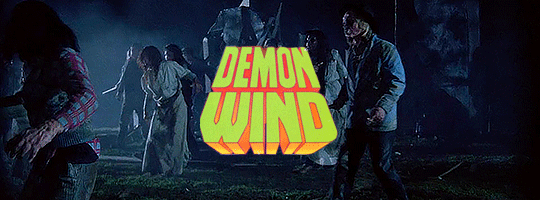

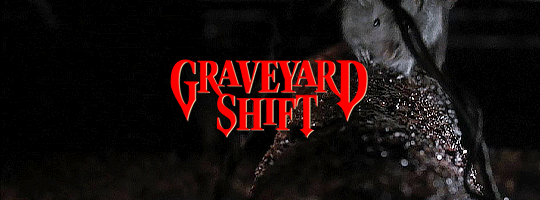

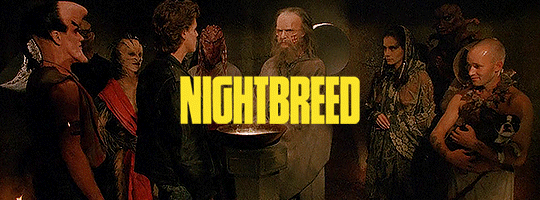


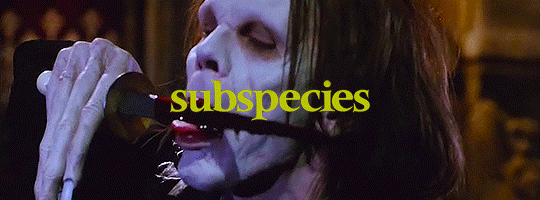
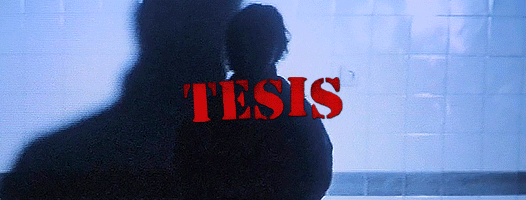
10 Overlooked 1990s Horror Movies To Consider For October/Halloween
#Horror#Filmedit#Horroredit#Cast A Deadly Spell#Demon Wind#Disturbing Behavior#Graveyard Shift#Highway To Hell#Nightbreed#Popcorn#Stir Of Echoes#Subspecies#Tesis#CHB#1990s#90s#10 Movies To Consider#I am not saying that these are the best or that they are my favorites.#Just 10 movies that I think are worth watching for the season.
1K notes
·
View notes
Text

SUMMARY: A man's investigation into his long-dead parents' demise leads to the haunted family mansion and a date with a demon.
#demon wind (1990)#supernatural horror#demon#1990s#united states#north american movie#horror#movie#poll
14 notes
·
View notes
Text
83 notes
·
View notes
Text
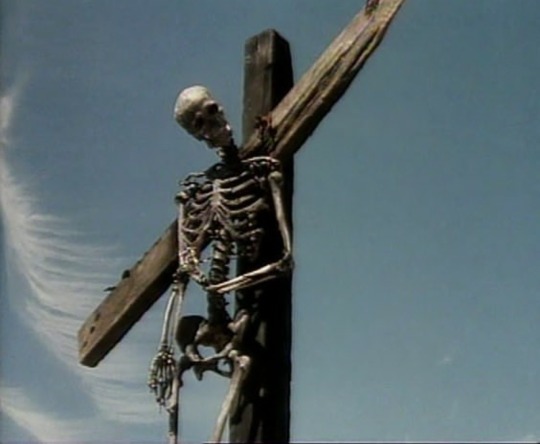
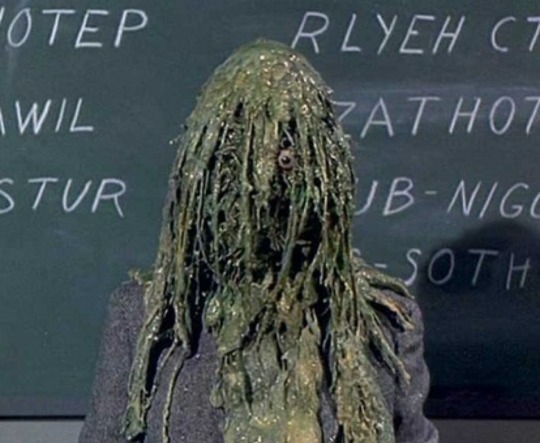
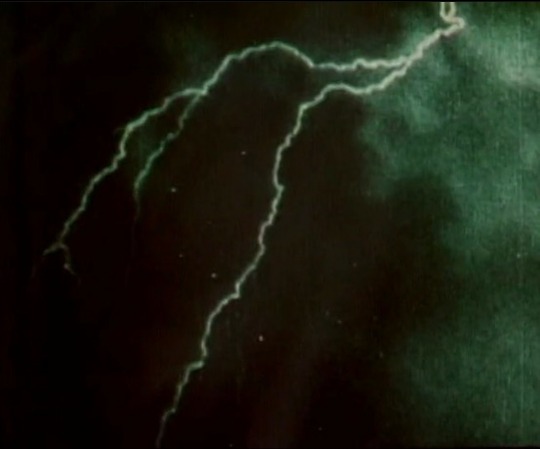
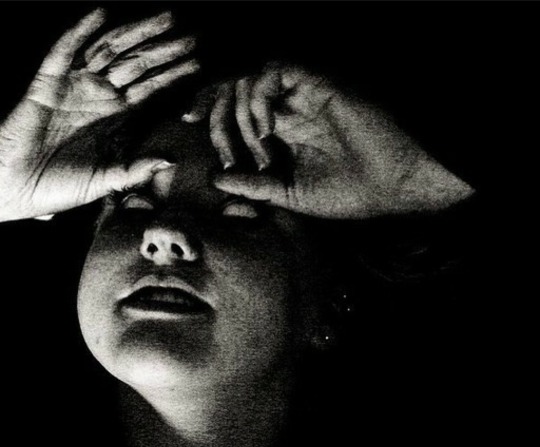
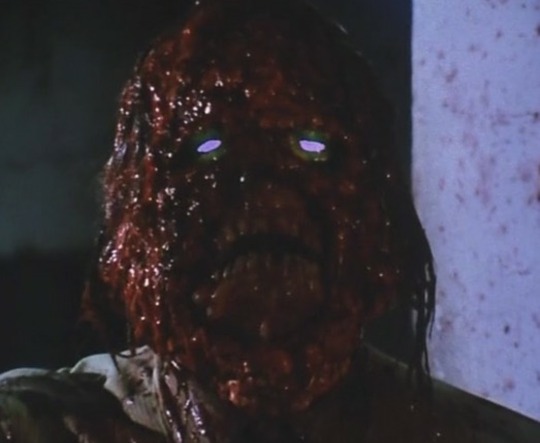
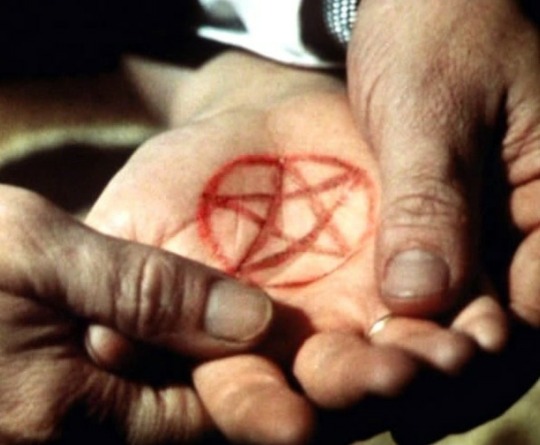
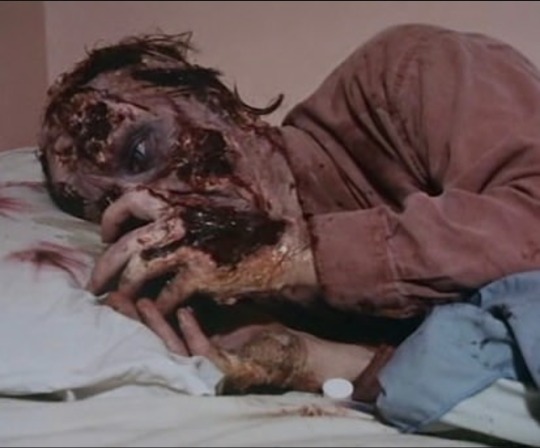
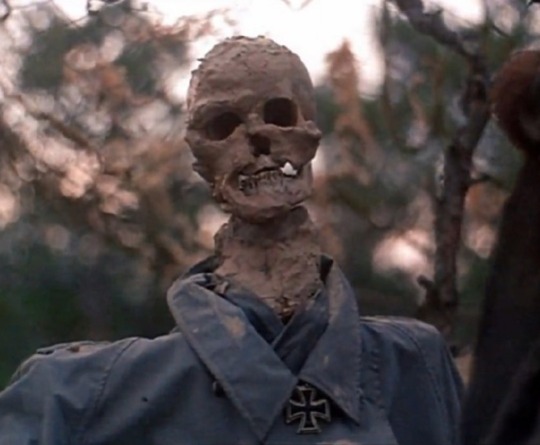
#Demon Wind (1990)#“Night Gallery” S2#EP8#Bride of Monster (1955)#premutos: the fallen angel#The Werewolf of Washington (1973)#I#Zombie (1998)#Altered States (1980)#Come and See (1985)#movies#random#b sides#underground#horror aesthetic#terror#horror movies#horror film#film
100 notes
·
View notes
Text
On April 26, 2019, Demon Wind and House of the Devil were screened as a double-feature on The Last Drive-In with Joe Bob Briggs.





#the last drive in#the last drive in with joe bob briggs#demon wind#the house of the devil#charles philip moore#ti west#jocelin donahue#supernatural horror#drive in movies#horror#horror movies#movies#film#drawing art horror art#double feature#1990s horror#2000s horror#indie film#indie horror#movie art#art#drawing#movie history#pop art#modern art#pop surrealism#cult movies#portrait#cult film
0 notes
Text
Demon Wind (1990)
One compliment you can give Demon Wind is that the title is just about perfect. This is a fart from Hell, and it’s nasty enough to peel paint. Unfortunately, the few scenes that might make it enjoyable as something “so bad it’s good” are bridged with a lot of boring material. This Evil Dead clone had to have a similar - or maybe even bigger - budget than the 1981 film but it looks 50 times worse.
After his father’s suicide, Cory (Eric Larson) asks his girlfriend Elaine (Francine Lapensée) and his friends (which include Jack Vogel as Stacey, Stephen Quadros as Chuck, Mark David Fritsche as Jack and Sherry Bendorf as Bonnie) to help investigate the family home. While investigating the ruins, they become trapped by a mysterious fog hiding demonic forces.
A group of friends trapped in a cabin in the woods while under attack by demons that proceed to possess them one at a time. The remaining young adults fight off their former friends as their numbers dwindle. It's pretty clear writer/director Charles Philip Moore was heavily influenced by Sam Raimi’s cult classic. You can also tell by the gore. Every demon oozes custard-colored blood like a maple tree come syrup harvest time. The major difference is that there isn’t a second of Demon Wind that’s self-aware and the attempts at humour are few. This movie wants you to be scared but you won’t be. When you laugh, it will be at its expense.
The funniest parts of the film come from a duo of smart-mouthed magicians who aren’t shy about throwing karate kicks. Every scene with them is gold. Too bad Demon Wind kills them off halfway through the movie. Once they’re gone, it’s impossible to remain invested in this story. Why would going back to this burned-out wreck would give Corey any answers about anything? His father lived there for a grand total of FOUR DAYS when he was a baby! Anyone with a brain would’ve taken one look at the crucified skeleton on the front lawn and turned away - I'm not sure if the fact it's been there for sixty years makes it better, or worse. Then again, asking human-like behaviour out of anyone in this film would be too much. The locals are so shifty you can’t not suspect them of being up to something. Elaine does a strip-tease in the middle of the rest-stop restaurant so the movie can throw some cheap titilation in. All of the friends converge on the house despite vague instructions left by Cory on their answering machines. It's a miracle this plot even manages to happen. Once it does, you'll be eager to see it end. You already know how this whole thing will play out.
If you’re looking to pair The Evil Dead with a movie that shows you how right the Bruce Campbell vehicle got it, I’m sure you can find better (worse?) than Demon Wind. You can probably find something funnier too. This movie has a Blu-ray release. I’m baffled as to why. It’s completely unmemorable and barely even a curiosity. If you stumble upon Demon Wind, you can have a few laughs at its expense but it will quickly fade from your memory. (October 8, 2021)
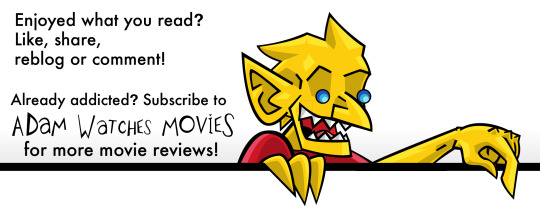
#Demon Wind#Charles Philip Moore#Eric Larson#Francine Lapensee#Rufus Norris#Jack Forcinito#Stephen Quadros#Mark David Fritsche#Sherry Leigh#movies#films#movie reviews#film reviews#1990 movies#1990 films
0 notes
Text
Looked at my Dead Boy Detectives swap AU, decided that it could be better, and ran with it. So... here ya go.
(For those of you who need a refresher---it's an AU where Crystal and Niko are the ghosts and Charles and Edwin are the alive ones. "Dead Girl Detectives," basically.)
Crystal is pretty much unchanged from the original concept---she died in the 1920's, she was a psychic socialite with absent parents, and she acted like the quintessential spoiled wild-child while secretly being fascinated by detective stories. She died when she got possessed by David the demon, who puppeted her body around for weeks... until she finally managed to wrench back some form of control, threw both of them off of a building, and wound up getting sent to Hell. Now that she's out and living free as a ghost, she's doing her level best to leave her old self behind and be a better person---partly for herself, but also so she can prove that she doesn't deserve eternal punishment if Hell ever comes for her again.
Niko's still an anime geek from the 1990's who was an outcast in life, but her death circumstances are different. Instead of dying from the dandelion sprites, she accepted an invitation to a party in an effort to try and socialize more after her father's death... and she got killed in a prank gone wrong, trapped in an abandoned mansion that used to belong to Crystal's family. She probably would've even moved on if it weren't for Crystal showing up and helping her out, giving Niko a reason to stick around. Niko's doing better now, but she still hasn't really processed her feelings surrounding her death. (Also, her hair's still white---she just dyed it that way, and it's never changed even after she died.)
Charles is also pretty much unchanged from the OG concept---he's still an irresponsible witch who got possessed by David and lost his memories as a result---with the added detail that he's one of many incredibly powerful magical people who David's possessed, wrecked havoc with their powers, and killed, though Charles thankfully survived the ordeal thanks to the Dead Girl Detectives. Also, I'm fairly certain that Charles is not only well aware that he's bisexual and out, but he and David were almost certainly dating. Or at least hooking up.
Edwin's still a socially awkward comics nerd and shut-in, but I decided to just have him get the paranormal parasite as a way for him to get involved with Charles and the Dead Girl Detectives---though, instead of a dandelion sprite that's all about soaking up attention, it's a hornet-themed sprite that feeds on people's insecurities and self-loathing. I think that he still butts heads with Crystal a little bit, but his bookish, studious nature winds up becoming incredibly helpful to the team, and he gets along great with Niko and Charles. Especially Charles.
Now, after thinking about it, I realized that if I was going to do a four-way swap with our main crew, it would probably make sense to do the same with our supporting cast. So:
The Night Nurse---or Minerva Knight, as I've tended to name her in my AUs---is in the place as Port Townsend's resident witch, though her motives are pretty different from Esther's. She has no need for any spells of eternal youth, having stopped aging a while ago, and she considers herself the protector of Port Townsend, keeping the forces of the supernatural at bay from the mundane residents... even if that means occasionally sacrificing a child or two to keep some of the more unsavory beings satisfied. Needless to say, Minerva has a very skewed view of morality, and unlike her canon counterpart, she can't really be swayed to change her mind. She's scary.
Esther, meanwhile, is in the lovely position as the Crow Queen, a charming and campy trickster being who exists to wear fabulous, over-the-top outfits, rule over her little feathered darlings, and to be a menace to everyone she meets. Her whole deal with Crystal isn't exactly flirtatious, but it's enough to give Crystal a gigantic bisexual awakening. And whether or not Esther's really all that interested and is just fucking with her, she's a lot of fun, and she's definitely instrumental in helping Crystal realize more about herself.
Thomas (the Cat King, but we're calling him by his first name) is Charles and Edwin's landlord---the owner of a queer bakery who's having a bit of a quarter-life crisis and is therefore a bit of an asshole to almost everyone he meets. Despite how prickly he is, though, he has an energy about him that makes him automatically endearing to every single misfit teen in a fifty-mile radius, and he's less than enthusiastic about it. Deep down, Thomas doesn't really mind, because he is a pretty lonely individual (not that he'd ever admit it).
And lastly, Jenny is the Night Guard On Duty in the Afterlife Lost & Found Department---overworked, burnt out, and thoroughly cynical when it comes to the affairs of the living. She's convinced that all she really needs is the big case that'll get her a promotion to a much less stressful position, and tracking down the Dead Girl Detectives seems to be just the thing. Of course, she's not as dedicated to her job as she appears to be, and even years of working in the most depressing place in the universe hasn't fully worn her down.
And, uh, other than the fact that I'm gonna have to figure out a stand-in for Monty... that's what I got!
#dead boy detectives#dead boy detectives au#crystal palace#niko sasaki#charles rowland#edwin payne#the night nurse#esther finch#the cat king#jenny green#crystiko#payneland
178 notes
·
View notes
Note
any podcast recommendations for guys Going Through It. im a sucker for whump and i’ve already listened to TMA and Malevolent sooo
Fiction Podcasts: Characters Going Through It / Experiencing the Horrors
Gore warning for most, here's 15 to get you started:
I am in Eskew: (Horror) David Ward is arguably the Guy Going Through It. Stories from a man living in something that very much wants to be a city, and a private investigator who was, in her words, "hired to kill a ghost". Calmly recounted stories set to Eskew's own gentle, persistent rain. The audio quality's a bit naff but the writing is spectacular. If you like the writing, also check out The Silt Verses, which is a brilliant show by the same creators.
VAST Horizon: (Sci-Fi, Horror, Thriller/Suspense Elements) And Dr. Nolira Ek is arguably the Gal Going Through it. An agronomist wakes from cryo to discover the ship she's on is dead in the water, far from their destination, and seemingly empty, barring the ship's malfunctioning AI, and an unclear reading on the monitors. I think you'll like this one. Great sound design, amazing acting, neat worldbuilding, and plenty of awful situations.
Dining in the Void: (Horror, Sci-Fi) So, the initial pacing on this one is a little weird, but stick with it. A collection of notable people are invited to a dinner aboard a space station, and find not only are they trapped there, but they're on a timer until total station destruction: unless they can figure out who's responsible. And there's someone else aboard to run a few games, just to make things more interesting. The games are frequently torturous. If that wasn't clear.
The White Vault: (Horror) By the same creators as VAST Horizon, this one follows a group sent to a remote arctic research base to diagnose and repair a problem. Trapped inside by persistant snow and wind, they discover something very interesting below their feet. Really well made show. The going through it is more spread out but there's a lot of it happening.
Archive 81: (Horror, Weird Fiction, Mystery and Urban Fantasy Elements) A young archivist is commissioned to digitize a series of tapes containing strange housing records from the 1990s. He has an increasingly bad time. Each season is connected but a bit different, so if S1 (relatively short) doesn't catch your ear, hang in for S2. You've got isolation, degredation of relationships, dehumanisation, and a fair amount of gore. And body horror on a sympathetic character is so underdone.
The Harrowing of Minerva Damson: (Fantasy, Horror) In an alternate version of our own world with supernatural monsters and basic magic, an order of women knights dedicated to managing such problems has survived all the way to the world wars, and one of them is doing her best with what she's got in the middle of it all.
SAYER: (Horror, Sci-Fi) How would you like to be the guy going through it? A series of sophisticated AI guide you soothingly through an array of mundane and horrible tasks.
WOE.BEGONE: (Sci-Fi) I don't keep up with this one any more, but I think Mike Walters goes through enough to qualify it. Even if it's frequently his own fault. A guy gets immediately in over his head when he begins to play an augmented reality game of entirely different sort. Or, the time-travel murder game.
Janus Descending: (Sci-Fi, Horror, Tragedy) A xenobiologist and a xenoanthropologist visit a dead city on a distant world, and find something awful. You hear her logs first-to-last, and his last-to-first, which is interesting framing but also makes the whole thing more painful. The audio equivalent of having your heart pulled out and ditched at the nearest wall. Listen to the supercut.
The Blood Crow Stories: (Horror) A different story every season. S1 is aboard a doomed cruise ship set during WWII, S2 is a horror western, S3 is cyberpunk with demons, and S4 is golden age cinema with a ghostly influence.
Mabel: (Supernatural, Horror, Fantasy Elements) The caretaker of a dying woman attempts to contact her granddaughter, leaving a series of increasingly unhinged voicemails. Supernatural history transitioning to poetic fae lesbian body horror.
Jar of Rebuke: (Supernatural) An amnesiac researcher with difficulties staying dead investigates strange creatures, eats tasty food, and even makes a few friends while exploring the town they live in. A character who doesn't stay dead creates a lot of scenarios for dying in interesting ways
The Waystation: (Sci-Fi, Horror) A space station picks up an odd piece of space junk which begins to have a bizzare effect on some of the crew. The rest of it? Doesn't react so well to this spreading strangeness. Some great nailgun-related noises.
Station Blue: (Psychological Horror) A drifting man takes a job as a repair technician and maintenance guy for an antarctic research base, ahead of the staff's arrival. He recounts how he got there, as his time in the base and some bizzare details about it begin to get to him. People tend to either quite like this one or don't really get the point of it, but I found it a fascinating listen.
The Hotel: (Horror) Stories from a "Hotel" which kills people, and the strange entities that make it happen. It's better than I'm making it sound, well-made with creative deaths, great sound work, and a strange staff which suffer as much as the guests. Worth checking out.
196 notes
·
View notes
Text
horror recs 2024
categories are a little broad but take from it what you will. personal favs are in bold and a * next to the name means this movie genuinely scared me
serial killers/stalkers/home invasion the black phone (2021) the invisible man (2020) hannibal (series; 2013-2015) maniac (2012) american psycho (2000) the silence of the lambs (1991) opera (1987) tourist trap (1979) halloween (1978) deep red (1975) black christmas (1974) the texas chain saw massacre (1974) peeping tom (1960)
ghosts/hauntings talk to me (2022) the haunting of hill house (series; 2018) i am the pretty thing that lives in the house (2016) under the shadow (2016) crimson peak (2015) mama (2013) the orphanage (2007) lake mungo (2008)* dark water (2005) the ring (2002) the others (2001) the devil's backbone (2001) ring (1998)* candyman (1992) poltergeist (1982) the haunting (1963) the innocents (1961)
vampires interview with the vampire (series; 2022- ) midnight mass (series; 2021) let the right one in (2008) bram stoker's dracula (1992) near dark (1987) the lost boys (1987) fright night (1985) dracula (1958) nosferatu (1922)
werewolves dog soldiers (2002) ginger snaps (2000) & ginger snaps 2 (2004) the howling (1981) an american werewolf in london (1981)
demons/witches longlegs (2024)* smile (2022)* incantation (2022)* hereditary (2018)* suspiria (2018) veronica (2017)* terrified (2017)* pyewacket (2017)* the autopsy of jane doe (2016) the exorcist (series; 2016-2018) the blackcoat's daughter (2015) the witch (2015)* evil dead (2013) the exorcism of emily rose (2005) the blair witch project (1999) the craft (1996) hellraiser (1987) suspiria (1977) the exorcist (1973) the devil rides out (1968) rosemary's baby (1968) black sunday (1960)
survival horror yellowjackets (series; 2021 - ) the terror (series; 2017) rogue (2007) the descent (2005)* open water (2003)
sci-fi horror crimes of the future (2022) annihilation (2018)* the fly (1986) the thing (1982) alien (1979) & aliens (1986)
monster movies willow creek (2013)* troll hunter (2010) the host (2006) pumpkinhead (1988)
folk horror the ritual (2017)* wake wood (2009)* the hallow (2015) pet sematary (1989) the wicker man (1973) the blood on satan's claw (1971) night of the demon (1957)
fantasy/fairytale horror gretel and hansel (2020) red riding hood (2011) the juniper tree (1990) the company of wolves (1984) psychological horror (that doesn't fit better into another category) candyman (2021) the lighthouse (2019) us (2019) get out (2017) gerald's game (2017) a cure for wellness (2016) the invitation (2015) it follows (2014)* excision (2012) may (2002) frailty (2001) dead ringers (1988) gothic (1986) carrie (1976) cat people (1942)
indie/experimental (mileage may vary) enys men (2022) skinamarink (2022) bones and all (2022) men (2022) the house (2022) relic (2020)* saint maud (2019) mandy (2018) the wind (2018) raw (2016)
balls to the wall crazy/fun as hell evil dead rise (2023) fall of the house of usher (series; 2023) late night with the devil (2023) saw movies (2004-2023) the menu (2022) nope (2022) malignant (2021) escape room (2019) & escape room: tournament of champions (2021) run (2020) the chilling adventures of sabrina (series; 2018-2020) 31 (2016) the boy (2016) american mary (2012) repo! the genetic opera (2007) trick 'r' treat (2007) sweeney todd (2007) dead silence (2007) house of wax (2005) house of 1000 corpses (2003) final destination (2000) ravenous (1999) lair of the white worm (1988) brain damage (1988) the texas chainsaw massacre 2 (1986) re-animator (1985) & bride of re-animator (1990) evil dead movies (1981-1992) phantom of the paradise (1974)
78 notes
·
View notes
Text
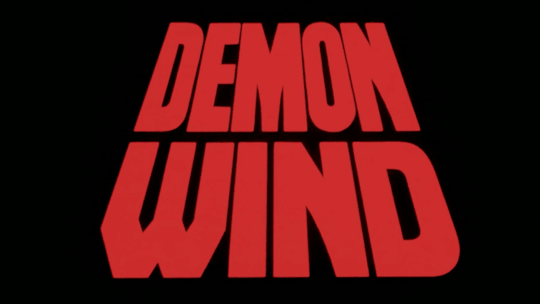
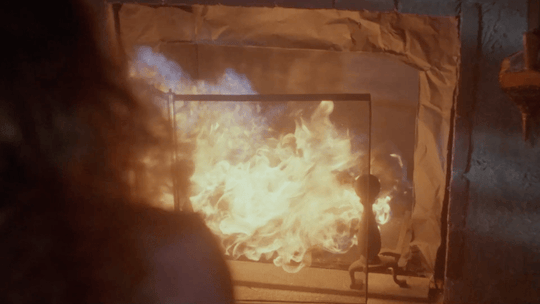
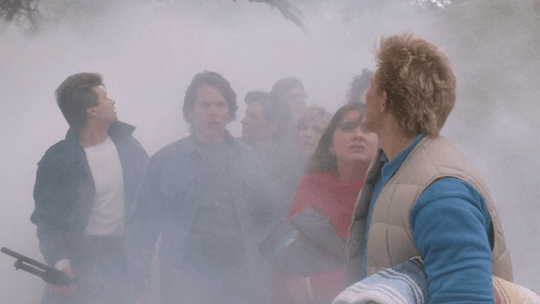
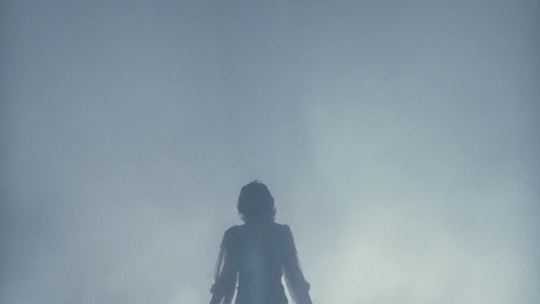
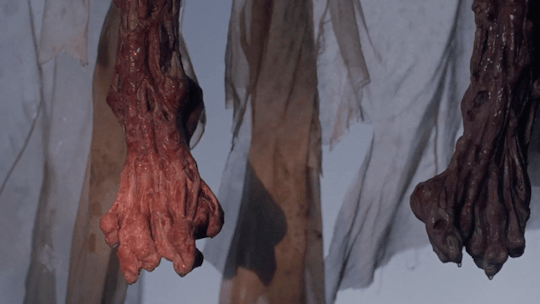
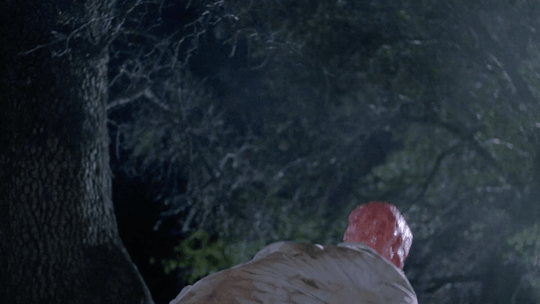
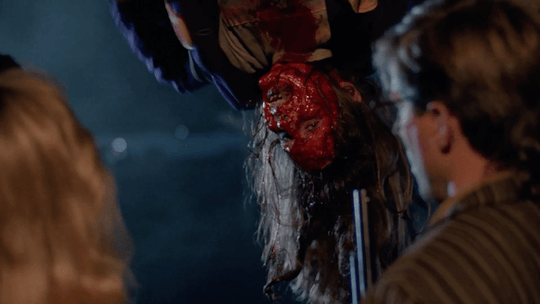
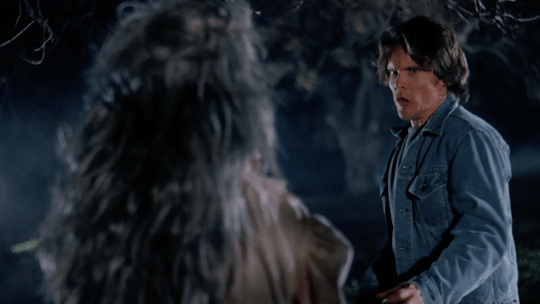
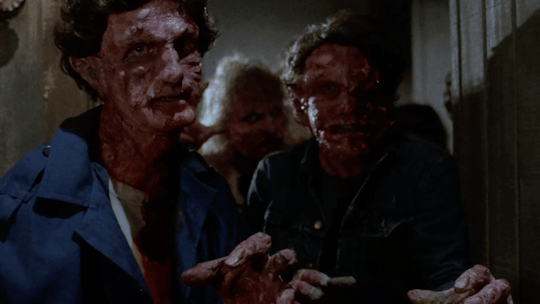
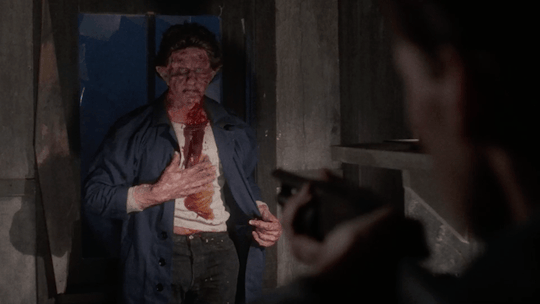
Demon Wind | 1990
191 notes
·
View notes
Text
Wake up, Good Omens fandom! We're doing something special!
Ineffable May 10
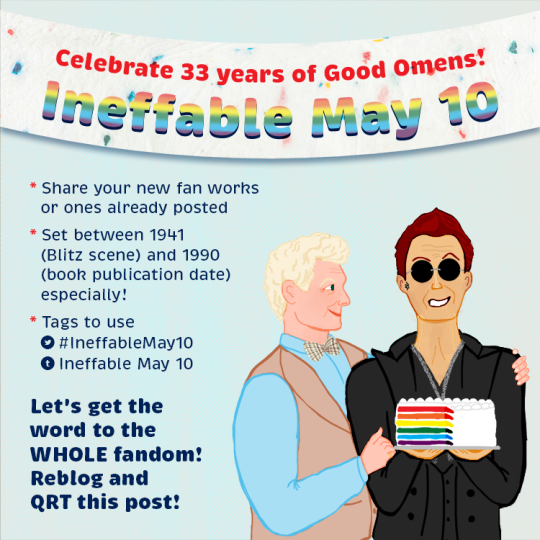
May 10 is both what is often cited as the date the book published (in 1990) and it's the day St Dunstan in the East Church (Neil's inspiration for the scene) would've matched up with the episode 3 Blitz scene (1941).
Bring on your fan works set between '41 and '90!
New or already shared fan works alike, they cover nearly 50 years of Crowley and Aziraphale knowing the other would absolutely, without a doubt save them. That's 50 years of "you can't deny this feeling".
40s, 50s, 60s, 70s, and 80s. There's so much you can do with those eras, for Aziraphale and Crowley, other angels and demons, and even many of the humans! Especially in bookverse.
Or do something AU and toss canon to the wind!
(I personally love that 1967, another Hard Times cold open scene year, is when London decided to turn the remains of the Blitz scene church INTO A GARDEN. Crowley definitely had something to do with that.)
You can use the tag for any Good Omens celebrations you have on May 10 but especially for showing those fan works set between 1941 (the Blitz scene!) and 1990 (when the book came out!)
AND HEY!
ANY HELP getting the word out is super. I am but a small fan with an even smaller reach. I want anyone who wants to participate to have a chance to hear about it! Thanks SO SO MUCH!
And speaking of thanks: THANK YOU @flantasticclaude for your enthusiasm for this sudden fandom event, and stepping in to make the above wonderful, rainbow-filled graphic to get the word out.🌈😇😈
Let's all have an amazing fandom celebration on May 10!
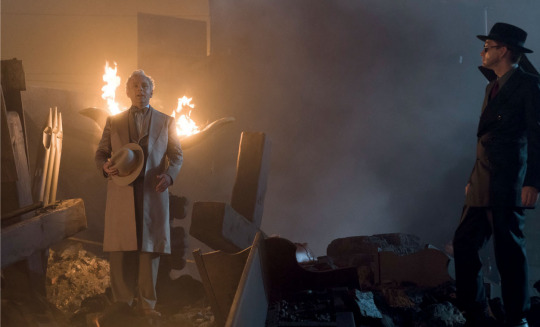
#Ineffable May 10#good omens#good omens 2#may 10#crowley#aziraphale#good omens series 2#good omens art#good omens fanfic
570 notes
·
View notes
Note
LWA: To expand on @robinwithay's point some more, I am thinking again about Crowley's equivalent to Aziraphale's stubbornness when it comes to rejecting Heaven. Crowley just will. not. learn. that actions have consequences, and that the responsibility lies with the agent, not some nebulous figure out there somewhere. What's striking, in fact, is that "actions have. consequences" is the closest thing the GO universe has to divine providence in action: when Crowley does something, it comes back to bite his occult arse, without fail, every single time. Shut down the cell phone network? Great, can't call Aziraphale. Make yourself look good to Hell? By golly, Hell is going to give you all the sweet assignments. (From their POV, anyway.) Turn a freeway into a demonic sigil? Whoops, it's on fire when you need to cross it, and also a lot of people are dead. Moreover, not only does the universe keep pointing this out to Crowley, but so do the other characters. In S1e1 alone, Hastur, Aziraphale, and SATAN FOR CRYING OUT LOUD all call him out on the whiny "why me?!" business, and Hell does it again in "The Resurrectionists." ("Off my head on laudanum. Not responsible for my actions!" HELL: Oh honey, no.) Arguably, "why me?" is the /one/ question to which Crowley gets a definitive answer, and he consistently refuses to listen to or learn anything from it.
Gaiman's very deliberate decision to prolong and inflate this aspect of Crowley's character is fascinating, because the Nuremberg Defense moment in the novel is there to put an /end/ to it. I keep harping on the Nuremberg Defense issue because in 1990, that was /topical/, not historical: at the time of publication, the most recent high-profile example of someone Nuremberg Defensing himself out of Nazi-era war crimes was Kurt Waldheim /in 1986/. Pratchett's and Gaiman's point in the novel is that Crowley's--and, more so than in the series, Aziraphale's--refusal to take responsibility for what they've done as Hell's and Heaven's agents leads inexorably to them thinking like, you guessed it, Nazi-era war criminals. But as of the end of S2, Crowley has still not come around to the moral epiphany about this that in the novel, Aziraphale has /first./ Instead, Gaiman's substitute for the Nuremberg Defense, the child murder subplot in S1, is averted in such a way that Crowley doesn't learn anything from it.
Further to the point that @robinwithay and others who responded made, you know who did learn something from the child murder subplot? Aziraphale. I said in an earlier ask that in S1, Aziraphale's own failure in the subplot is that he winds up deferring to Crowley's judgment, despite his own clear discomfort, because he cannot turn to Heaven for moral authority. "You can't kill kids" is not represented as a divine or infernal universal mandate--it's a /human/ mandate that transcends both. (That's entirely in keeping with the point, made in both the book and the series, that humans are capable of both far greater good than angels and far greater evil than demons.) In S2, Aziraphale does what he /should have done/ in S1, and says "no" to Crowley's proposal that Gabriel just be abandoned somewhere. I think people sometimes forget that Crowley, for all that he asks questions and nudges Aziraphale along out of his allegiance to the Heavenly party line, is not the series' moral arbiter. Aziraphale knows that Gabriel is facing "something terrible" and is not sure whether or not he's still "awful," but he does what S2 itself shows by the end to be the right thing. Doing the right thing sometimes means telling Crowley "no" and sticking to that no, just as, in S1, the moment Aziraphale hits on the right question to ask at the airfield, he moves /away/ from Crowley to stand with Adam.
good afternoon LWA!!!💕
okay so i feel some frank warning is due for anyone else reading my reply, especially if you're new around these here parts: what follows beneath the cut is going to be crowley-critical. it's not meant in bad faith, but recognising character shortcomings is important for all characters involved. there is (quite rightly) a lot of critique in relation to aziraphale in the fandom, and this is not in ignorance or denial of that - there are certainly points where aziraphale's actions throughout both seasons are called out, and i agree with a number of them - but a) that's not what im talking about here, that's a different post, and b) similar analysis of crowley is (as far as ive seen personally in the months ive been active) not as common - hence the post. if that's not your bag, fair enough, but take heed!!!✨
can't believe a fandom-specific cw for this is necessary but. here we are
(because i get asked this a fair amount - AWCW: Angel Who Crowley Was) (and just now recognising the grammatical error in this, ah well we move)
the part of crowley's character that does not accept consequences, and seemingly refuses to learn from them, is one of the most intriguing for me. as well as all of the instances that you've listed, this is something that we see as being so inherent to him that it even predates the fall; it's not a trait that is specific to crowley-as-a-demon, but to crowley-as-crowley. for all of the understandable reasons that AWCW felt he should ask questions, should challenge why his hard work and creativity was going to be put to waste as if it were nothing, he outright dismissed aziraphale's frankly prophetic advice that directly delivering criticism to the almighty, even if meant with the best of intentions, might spell for trouble... might even spell for AWCW's own personal ruin.
slightly unrelated, but another note: the mindset of, "if i were in charge", however much it might have been meant offhandedly or innocently, even connotes an incredible amount of hubris that, whilst not wholly condemnable in itself, gives an interesting insight into how crowley views himself from before the fall and going into present day.
AWCW's questions may come from a place of innocence and collaboration, and may speak to how much trust he placed in god/heaven to hear his questions with patience and understanding, but it still remains highly likely that he dismisses aziraphale's warning. and the reason he ignores it, most likely, is because it is not what he wants to hear, nor does it (in his eyes) benefit him to exercise caution. one could go a step further and suggest that this indicates a fatal "crowley knows best" mentality, which the rest of the two seasons doesn't exactly negate. and look - that's fine, ignoring advice is hardly an indictable offence, but if what you're doing goes to shit? that is on you.
shifting into speculation-mode in the absence of any confirmed account of the fall itself, we can presume that AWCW's questions fall on deaf/reticent/dismissive ears, and that will just as likely have left AWCW with a sense of frustration and resentment. i continue to be a really hopeful advocate of AWCW having had a lucifer-parallel narrative; that after what was essentially a dismissal, he may have precipitated (at least) the inception of the fall by way of knowingly or unknowingly planting the seeds of rebellion amongst the eventual-fallen... e.g. "they're not treating us fairly, all of our effort will be for nothing, all in service and deference to 'human beings', i tried to speak to god about it but they won't even hear me out."
i don't think he will have led the rebellion, that doesn't quite seem appropriate to his character, but certainly that he may have sparked the initial machinations, and then - by furfur's account - participated in the war. this, again, would fall in line with crowley's ongoing tumultuous relationship with consequences-borne-from-his-actions.
crowley's unreliable narratorship of his own fall is, by definition, untrustworthy, and as such it's not a given that he was unimpeachable in any participation of it. "i didn't mean to fall" would definitely suggest that it was not his intention, but if we return to the Dead Whale Theory, this is a dead whale that crowley has failed to fully accept, or learn from. he seems - when we consider how he inhabits the role of god (as he sees that role to be, anyway) in how he treats his plants in s1 and the goats in s2 - to be very much of the opinion that he is entirely innocent of any wrongdoing.
and in some respect, he's not wrong - asking questions is not a bad thing, it's a very good thing, and his willingness to do so is one of crowley's greatest assets - but his refusal to heed advice in favour of his own agenda, refusal to accept the answers given even (especially?) when he doesn't like them, to have potentially sparked dissent that led to a war (which he fought in), and his lack of accountability for the results, is where he falls down. im not going to go so far as to call it narcissistic behaviour, that feels a bit extreme, but there are... similarities. he doesn't learn from the whole fiasco in any manner that would indicate self-reflection, and instead seems to have walked away from the fall with his clear-cut conclusion that heaven was wrong, and are in fact The Bad Guys.
certainly, GO proposes that heaven isn't the traditional definition of truth, light, and good that aziraphale hopes that it is intrinsically... but crowley still hasn't reached the point of understanding the rest of what the narrative is saying.
heaven and hell are not always good and bad respectively, but they are not always bad and good respectively either. it's not a simple, 'we're turning this on its head' concept. it is altogether a veeeery grey system that simply exists, and it exists in the way that it always has done since the fall (possibly even before, in heaven's case). it is instead your choice whether or not to be part of that system, if you do not think it is right. if you continue be a part of that system, even if there are stakes involved that would make it difficult or compelling for you to remain and act within that system, you should at least recognise the consequences of your actions, accepting your part in it. this goes for all angels and demons, not just aziraphale and crowley. 'just following orders' may be understandable in some circumstances (e.g. threat to life of yourself or others), but does that mean that you are absolved of all responsibility?
we are, collectively, quick to point out that aziraphale has not fully learnt this, but it's clear that crowley has not either. it also suggests by extension that aziraphale is not always wrong, just as crowley is not always right. where actions-and-consequences are concerned, i'd tentatively wager that aziraphale at least demonstrates a bit more understanding of this than crowley does. aziraphale has been shown to recognise when he is wrong, accept it, and make efforts to correct himself or remedy his erroneous actions moving forward. aziraphale hides the antichrist's location from crowley and holds out hope for a higher power to see reason/do the right thing, but when aziraphale gets the confirmation that heaven isn't going to do the right thing by stopping the apocalypse, the first thing he does is call crowley to tell him about adam. you also then have, as you said, aziraphale physically and figuratively moving to stand with humanity; good and bad are just names for sides, and 'human incarnate' equally embraces both concepts (in their truest meaning) and yet similarly rises above both. this is the side to back; 'our side', to aziraphale, doesn't mean just him and crowley, but humanity too.
alternatively (really grinding at the fall thing here, sorry), even if AWCW did not willfully participate in any goings-on of the rebellion, and the fact that he fell was an incident in which he was blamelessly implicated/scapegoated... well, even then, that does not give him a free-pass for him to continuously believe that he is innocent in all matters that follow. sure, he may have been blameless in the fall, but does that mean he's therefore beyond reproach or above accountability for... everything he does/says that occurs afterwards?
setting up the perfect environment for armageddon? tempting aziraphale to kill the antichrist? giving a group of humans live firearms in order to make a point? abandoning aziraphale and retracting 'our side' when aziraphale asked him for help with hiding gabriel? withholding information from aziraphale that directly concerns him and his safety? i said it in a separate post (mainly because it would have made this one a really ungodly length), but my point remains the same; regardless of his part or not-part in the fall, crowley's character does not develop in this arena, despite incredibly formative experiences that might in fact impart an important lesson upon him*.
*and that lesson - again! - is not that he shouldn't ask questions, but instead that his actions may prove to have consequences that he does not like or want, but must accept anyway, taking accountability for his part in them.
not changing does not mean that he is perfect from (before) the beginning, but instead suggests that he is very comfortable being the same person that he's always been... and in some ways, it's commendable to remain true to oneself, but it's equally not conducive to growth... and crowley still has a lot of growing to do (he has grown since s1: his kindness for one thing absolutely has!).
crowley does not seem to recognise where his lack/refusal of development may have contributed to the breakdown in his and aziraphale's relationship by the end of s2, even if that lack/refusal is not directly referenced in the final fifteen. by this i mean: crowley appears to have a very clear expectation of how he believes aziraphale does - and perhaps should - think and behave. crowley, to crowley's mind, he has the right of it ("crowley knows best"), and that includes him thinking that aziraphale will act in the way he has come to expect as a result of his influence on him. crowley has poked and prodded aziraphale away from heaven's rhetoric and dogma* about what good and right is, which aziraphale desperately needed... but does that mean that aziraphale should replace that belief system with Morality According To Crowley? instead of developing his own ...exactly as aziraphale demonstrates in the final fifteen?
when aziraphale doesn't do what crowley thinks he ought to, instead of crowley considering that his perspective of aziraphale may not actually be reality, he takes it as a betrayal and a rejection of crowley himself. though we won't really know until s3 (and possibly not even then) what crowley was really thinking during the final fifteen, it isn't too impossible a notion that crowley now thinks that aziraphale has chosen heaven over him, and loves heaven more than him. which... after everything that he has seen aziraphale go through, battle, and come to terms with, does he truly think that little of him? that aziraphale would think that little of crowley? if he does, that's an incredibly sad and disappointing prospect. perhaps bold of me to say, but sometimes it seems that there are some specific similarities between crowley and heaven in how they individually view and treat aziraphale.
*whilst crowley encouraging aziraphale to think outside of heaven is a good thing, and aziraphale definitely needs it, it does elicit out a couple of concerning traits from them both that, whilst may be borne from respective senses of powerlessness, they manifest onto each other.
crowley has a hero/saviour complex, which aziraphale encourages. aziraphale encourages it - by his own admission - because he thinks it makes crowley happy. however, what is not clear is whether aziraphale recognises that in allowing this, not only does it potentially suggest that crowley benefits from perceiving aziraphale as incapable of protecting himself, and any ability to protect himself (or indeed crowley! 1941!) threatens what crowley thinks is his place in aziraphale's existence, but also that aziraphale himself is projecting what he doesn't get from heaven/god onto crowley.
it similarly isn't clear whether crowley realises that not only he has been - in part - substituted for god/heaven in aziraphale's eyes because he provides the love, acceptance and confirmation of worth that aziraphale has craved since time immemorial, but also that in keeping information from aziraphale that directly concerns him, crowley is nurturing an environment where aziraphale will make decisions according to the limited information he has. we even have a suggestion of this in the final fifteen: to aziraphale's mind, it won't be crowley that protected him from heaven's threat of erasure from the BOL (ie. crowley didn't tell him), it was the metatron. (and if aziraphale finds out about/puts together, in s3, the sheer amount and scale of information that crowley kept from him, there is going to be the hard conversation of whether trust between them can exist as it has before, built over thousands of years).
just as crowley has an arguably skewed perception of aziraphale, aziraphale has a skewed perception of him in return (the levels of codependency are off the charts, lads). it's not a unique observation to say that they both need this break in order to renegotiate within themselves how they view each other, but it's no less true for being repeated.
#bracing myself for impact#dont say i didnt warn you though#im gonna go make an amv now k thx bye#good omens#ask#aziraphale meta#feral domestic/final fifteen meta
54 notes
·
View notes
Text
MACHINE HEAD, PAPA ROACH And GOJIRA Among First Confirmed Bands For 2025 Edition Of WACKEN OPEN AIR
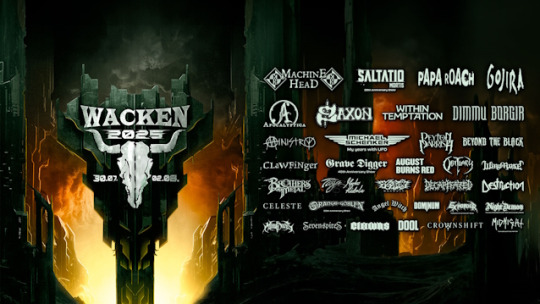
The organizers of the annual Wacken Open Air festival have announced the first confirmed bands for the 2025 edition of the event, set to take place from July 30 to August 2 in Wacken, Germany.
A total of 34 artists have been announced for the 34th edition of Wacken Open Air, including MACHINE HEAD, PAPA ROACH, GOJIRA, APOCALYPTICA, SAXON and WITHIN TEMPTATION.
A total of 85,000 tickets were sold for Wacken Open Air 2024.
Confirmed bands so far for Wacken Open Air 2025:
MACHINE HEAD SALTATIO MORTIS PAPA ROACH GOJIRA APOCALYPTICA SAXON WITHIN TEMPTATION DIMMU BORGIR MINISTRY MICHAEL SCHENKER (My Years With UFO) PEYTON PARRISH BEYOND THE BLACK CLAWFINGER GRAVE DIGGER (45th-Anniversary Show) AUGUST BURNS RED OBITUARY WIND ROSE BROTHERS OF METAL TARJA & MARKO HIETALA HANABIE DECAPITATED DESTRUCTION CELESTE ORANGE GOBLIN ANGEL WITCH DOMINUM EXHORDER NIGHT DEMON MIMI BARKS SEVEN SPIRES CLOWNS DOOL CROWNSHIFT MIDNIGHT
The ticket presale begins on Sunday (August 4) at 8 p.m. German time from metaltix.com and wacken.com.
German hard rock legends SCORPIONS headlined this year's edition of Wacken Open Air, which takes place annually in Wacken, a village with a population of just about 2,000.
The first Wacken Open Air event in 1990 drew less than 800 people, but it has since grown to become the biggest open-air festival of its kind.
Around 30 percent travel from other countries to the festival, which over recent years has been growing in popularity.
Wacken Open Air was forced to take a break for two years due to coronavirus restrictions.
Wacken Open Air normally does not announce the names of its headliners before tickets go on sale. Still, the festival usually sells out within hours.
The festival also doesn't sell VIP access or upgrades and all purchases are for all the days without a single-day ticket option, something they did away with two decades ago.
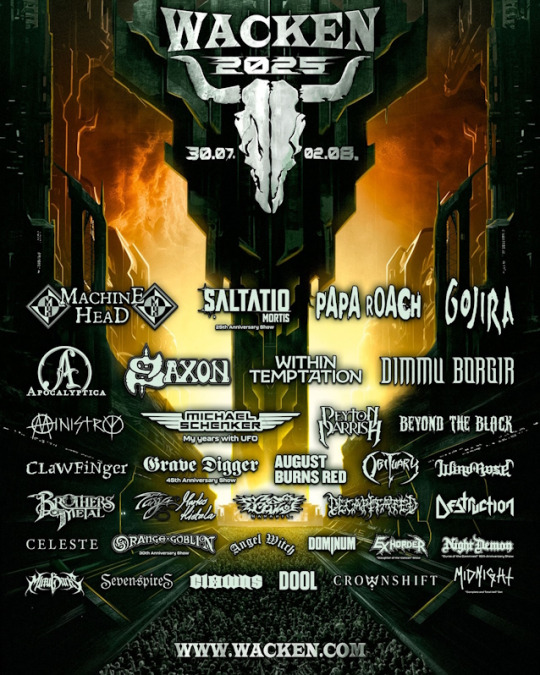
14 notes
·
View notes
Text
1979-1990 Anime Primer
I wrote this primer to serve as an introduction to those new to 80s anime. It features 50 titles (plus one bonus title), all of which are either films or OVAs for ease of viewing. Please note that Studio Ghibli films from this era were purposefully excluded since they are already so well-known (I consider Nausicaä to be pre-Ghibli).
1979 Aim for the Ace!
1979 Galaxy Express 999
1979 Lupin the Third: The Castle of Cagliostro
1981 Ashita no Joe 2
1981 The Door into Summer 1981 The Fantastic Adventures of Unico
1981 Mobile Suit Gundam: The Movie Trilogy
1982 Arcadia of My Youth
1982 Space Adventure Cobra: The Movie
1983 Urusei Yatsura Movie 1: Only You
1984 Birth
1981 Daicon IV
1984 Macross: Do You Remember Love?
1984 Nausicaä of the Valley of the Wind
1984 The Star of Cottonland
1984 Urusei Yatsura Movie 2: Beautiful Dreamer
1985 Angel’s Egg
1985 GoShogun: The Time Étranger
1985 Leda: The Fantastic Adventure of Yohko
1985 Megazone 23
1985 Minky Momo: La Ronde in My Dream 1985 Night on the Galactic Railroad 1986 Fist of the North Star
1986 Megazone 23 Part II
1986 Project A-ko
1986 Windaria
1987 Black Magic M-66
1987 Bubblegum Crisis
1987 Devilman: The Birth/Demon Bird
1987 Dirty Pair: Project Eden
1987 Neo-Tokyo
1987 Robot Carnival
1987 Royal Space Force: Wings of the Honnêamise
1987 To-y
1987 Twilight of the Cockroaches
1988 Akira
1988 Dominion Tank Police
1988 Dragon’s Heaven
1988 Gunbuster
1988 Legend of the Galactic Heroes: My Conquest is the Sea of Stars
1988 One Pound Gospel
1988 Vampire Princess Miyu
1989 The Five Star Stories
1989 Gosenzo-sama Banbanzai!
1989 Mobile Suit Gundam 0080: War in the Pocket
1989 Patlabor: The Movie
1989 Venus Wars
1990 Cyber City Oedo 808
1990 Nineteen 19
1990 Record of Lodoss War
BONUS Blue Blazes
20 notes
·
View notes
Note
hello, i was wondering if you perhaps knew of any fics that involve crowley and anathema being friends? ive just always felt like they would get on well, they're both similarly odd and prone to ranting about the sizes of animals brains
thank you so much for all the work you all do btw!!
Hi! Here are some fics which feature a friendship between Crowley and Anathema...
You've Got a Funny Way of Making Friends by ellbie (T)
Anathema swirled her drink in her glass. “Then what?” “Er, then… I don’t know. I didn’t see him again until the Great Flood.” “Well, when did you start, y’know…” Anathema waggled her eyebrows. Crowley flustered. “Mind your own business, witch.” “Hey, you’re the one that agreed to talk to me about all this stuff. You can’t be mad that I’m asking questions.”
Friendship is Demonic Magic by Shadow0kana & whtbout2ndbrkfst (T)
After Crowley interrupts Aziraphale and Anathema’s phone conversations one too many times, Aziraphale suggests the two have their own meetups to discuss what they have in common. Cue monthly coffee dates between a witch and a demon who can passionately discuss (debate) anything from Halloween to Astronomy to Hamlet… while also conspiring to form a book swap aimed at getting Aziraphale to read anything written after 1950.
The Nice and Accurate wedding of Anathema Device, Witch, which went just as expected by Nenchen (G)
Wedding planner Anathema Device is the Number One. She can organize anything for a wedding, flower arrangements, catering, a marching band or an emu. The name Device is a guarantee for a picture perfect wedding - and the perfect pictures will be taken by her top wedding photographer, and best friend, Anthony J. Crowley.
Both of them see weddings mostly as business, until Anathema meets Newt, Love of her life, walking natural disaster extraordinaire, and very much not a person it’s possible to have a perfect wedding with.
Which is perfect since Anathema frankly never wanted one for herself. She just wants a fun party, good food, and all of her friends to attend - including Crowley. For whom this might just as well be the apocalypse because no, he is not allowed to work on her wedding. Strictly invited only as a guest, Crowley finds himself at a loss. What the hell do you do at weddings? Well, if you are Crowley, the answer is some James Bond-like action, some worrying about fly swarms and their sources, having a lot of emotions, drinking some very funny wine, putting your foot in your mouth and just maybe meeting someone to share all of that with. Oh, and there’s always cake, isn’t there?
Healing by AppleSeeds (M)
After Crowley sustains an injury, his friend Anathema persuades him to come with her to the spiritual centre she regularly attends so that he can receive some spiritual healing. Crowley doesn't expect the healer to be quite so attractive, and certainly not that he'll end up developing a crush on him. As their sessions together progress though, Crowley starts to wonder whether Aziraphale might actually have feelings for him too.
Thrown for a Loop by MickyRC (T)
It is a truth universally acknowledged that a man in possession of a large amount of yarn will be assumed to be a knitter.
It is a truth universally acknowledged among crocheters that this is annoying as hell.
In his many years crocheting, Aziraphale has never been one to let that assumption stand. But faced with an opportunity to join a knitting group run by a very sweet new shop owner, he decides to play along. Even if it means he has to pretend he wants to learn how to knit. Even if it means he has to hide his skill with a crochet hook.
It’ll be worth it to get to know Crowley better. Probably. Hopefully.
(It will.)
secondhand smoke by PaintedVanilla (T)
you're second hand smoke, second hand smoke i breathe you in, but, honey, i don't know what you're doing to me mon chéri
the year is 1990, and anthony crowley is looking for a church in london that might be tolerable. the one he winds up attending isn't exactly such, but he decides to stick around for one reason. said reason happens to own a bookshop that crowley begins to frequent, much to the surprise and delight of anathema device and newton pulsifer, who seem quite convinced that crowley could use something else to focus on besides gardening, their campaigns, and visits to tadfield.
- Mod D
115 notes
·
View notes
